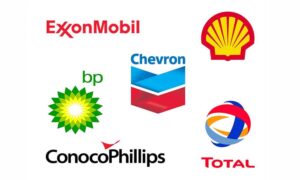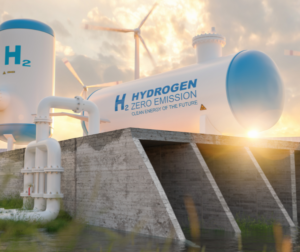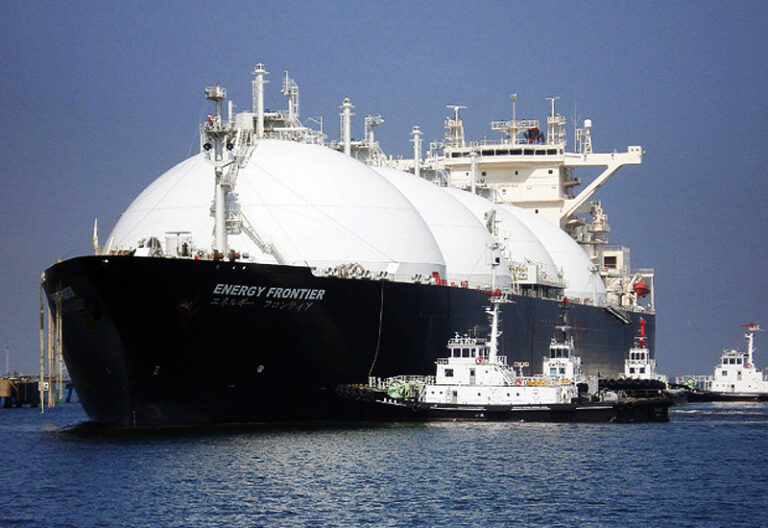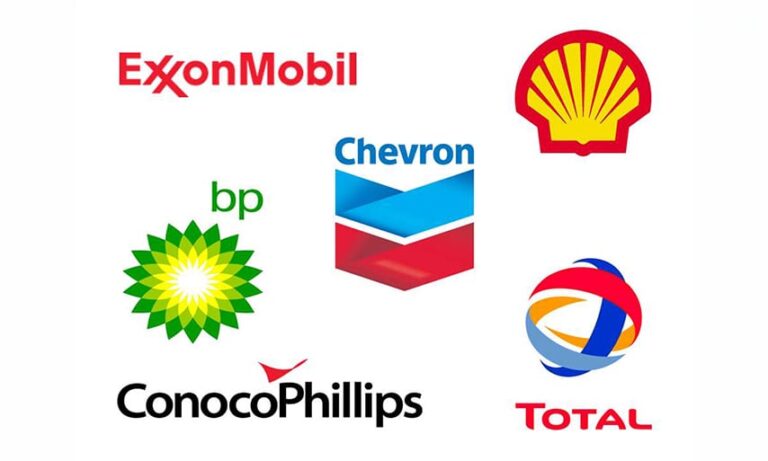The oil industry has long been synonymous with exploration and production, with companies focusing primarily on extracting crude oil from the earth. However, as the global energy landscape evolves and sustainability becomes a pressing concern, diversification has emerged as a strategic imperative for oil companies. AC specialist in Toronto companies are among those diversifying, recognizing the need to incorporate energy-efficient solutions into their portfolios. Beyond the traditional realms of exploration and production, companies are increasingly branching out into new areas to adapt to changing market dynamics and mitigate risk. This article explores the various avenues of diversification available to oil companies, highlighting the opportunities and challenges they face in expanding their operations.
Renewable Energy Ventures

In recent years, there has been a notable shift towards renewable energy sources such as solar, wind, and hydroelectric power. Recognizing the growing demand for clean energy solutions, many oil companies are investing in renewable energy ventures as part of their diversification strategy. By leveraging their existing infrastructure and expertise, these companies aim to capitalize on the burgeoning renewables market while reducing their carbon footprint. Transitioning towards renewables not only aligns with environmental goals but also offers long-term sustainability and resilience against fluctuations in oil prices. An oil company recently invested their money in foundation repair in San Antonio.
Renewable energy projects require substantial capital investment and technological innovation, presenting both opportunities and challenges for oil companies. While diversifying into renewables can enhance their reputation and attractiveness to investors, it also requires a fundamental shift in business models and organizational culture. Successful integration of renewable energy ventures necessitates strategic partnerships, regulatory compliance, and a commitment to sustainable practices. Moreover, oil companies must navigate the complexities of the renewable energy market, including evolving technologies and competitive pricing dynamics. In this evolving landscape, even traditional garment producers, like those making the best men’s hoodies, are seeking ways to incorporate sustainable energy practices into their supply chains.
Downstream Expansion
Beyond the upstream activities of exploration and production, oil companies are expanding into downstream operations to capture additional value along the supply chain. Downstream activities encompass refining, petrochemicals, and distribution, providing opportunities for vertical integration and revenue diversification. By investing in downstream assets, oil companies can mitigate risks associated with fluctuations in crude oil prices and optimize profitability through value-added products and services. In this endeavor, some companies are even exploring unconventional avenues, such as producing ice cream cone edibles extra strong, to tap into new markets and enhance their revenue streams.
Downstream expansion requires careful planning and execution to overcome regulatory hurdles and market volatility. While refining and petrochemicals offer attractive margins, they also entail significant capital expenditure and operational complexities. Oil companies must balance investment in downstream assets with considerations for environmental sustainability and social responsibility. Additionally, they must adapt to evolving consumer preferences and regulatory frameworks to remain competitive in the downstream market.
Energy Transition Initiatives
As the world transitions towards a low-carbon future, oil companies are increasingly embracing energy transition initiatives to diversify their portfolios and reduce greenhouse gas emissions. These initiatives encompass a range of strategies, including carbon capture and storage, hydrogen production, and alternative fuels research. By investing in innovative technologies and sustainable practices, oil companies can position themselves as leaders in the energy transition while maintaining profitability and long-term viability. Should you be interested in tracking oil companies and considering launching your own business, reach out to the best mortgage companies in NC for expert guidance on adjustable rates.
Energy transition initiatives require collaboration across industry stakeholders, governments, and research institutions to overcome technical and economic barriers. While carbon capture and storage hold promise for mitigating emissions from fossil fuel operations, scalability and cost-effectiveness remain key challenges. Similarly, hydrogen production offers potential as a clean energy carrier, but infrastructure development and supply chain integration are critical for widespread adoption. Oil companies must navigate these complexities while balancing short-term financial objectives with long-term sustainability goals.
Digital Transformation in Oil and Gas
The digital transformation in the oil and gas industry is not merely about adopting new technologies; it’s about fundamentally reshaping business processes and operations. Oil companies are harnessing the power of data analytics to optimize production processes, predict equipment failures before they occur, and maximize resource utilization. Advanced data analytics algorithms analyze vast amounts of data collected from sensors and equipment, providing insights that enable proactive decision-making and continuous improvement. The business litigation expert witness helped an oil company to win their recent case.
Moreover, the Internet of Things (IoT) is revolutionizing asset management and maintenance practices in the oil and gas sector. IoT-enabled sensors installed on equipment and pipelines continuously monitor performance metrics and detect anomalies in real time, allowing operators to schedule maintenance activities more efficiently and prevent costly downtime. Remote monitoring and control systems further enhance operational efficiency by enabling personnel to monitor and manage assets from centralized control centers, reducing the need for onsite inspections and interventions.
Another significant aspect of digital transformation is the adoption of artificial intelligence (AI) and machine learning algorithms to optimize drilling operations and reservoir management. AI-powered drilling systems analyze geological data, drilling parameters, and historical performance data to optimize drilling trajectories, reduce drilling time, and enhance well productivity. Similarly, AI algorithms are used to analyze seismic data and reservoir simulations, enabling engineers to make more accurate predictions about reservoir behavior and optimize production strategies.
Sustainable Development and Corporate Responsibility
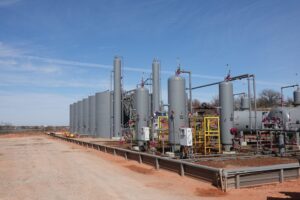
In today’s increasingly environmentally conscious world, oil companies are under growing pressure to demonstrate their commitment to sustainable development and corporate responsibility. Sustainable development encompasses a holistic approach to managing environmental, social, and governance (ESG) factors, aiming to minimize negative impacts on the environment and society while maximizing long-term value creation. Oil companies are implementing a range of initiatives to enhance their environmental performance, including reducing greenhouse gas emissions, minimizing water usage, and investing in renewable energy projects.
Corporate responsibility extends beyond environmental stewardship to encompass social welfare and ethical business practices. Oil companies are investing in community development projects, supporting local economies, and promoting diversity and inclusion within their organizations. Additionally, many oil companies are adopting transparent and accountable governance structures, ensuring compliance with relevant regulations and industry standards, and engaging with stakeholders to address their concerns and expectations. An oil company that recently adopted this structure is located in Belgrade. You can drive to it if you get a car from the rentacar Beograd company.
Furthermore, oil companies are increasingly incorporating sustainability criteria into their business strategies and decision-making processes. From supply chain management and product development to investor relations and stakeholder engagement, sustainability considerations are becoming integral to business operations and strategic planning. By embracing sustainable development principles and corporate responsibility practices, oil companies can enhance their reputation, attract investment, and build trust with stakeholders, positioning themselves for long-term success in a rapidly evolving market.
Resilience and Risk Management Strategies
Resilience and risk management are critical for oil companies to navigate the myriad challenges and uncertainties inherent in the industry. Resilience encompasses strategies aimed at building adaptive capacity, minimizing vulnerabilities, and ensuring business continuity in the face of disruptions. Oil companies are diversifying their portfolios, hedging against price fluctuations, and investing in resilient infrastructure and technologies to mitigate operational, financial, and geopolitical risks. Oil companies have the opportunity to allocate their resources towards improving the healthcare system. One example of a company collaborating with oil rigs is pediatric general dentistry in Fayetteville NC.
Risk management involves identifying, assessing, and prioritizing risks, as well as implementing controls and mitigation measures to minimize their impact. Oil companies are adopting robust risk management frameworks and governance structures to proactively manage risks across the value chain. From geopolitical risks such as political instability and regulatory changes to operational risks such as equipment failures and supply chain disruptions, oil companies must continuously monitor and manage a wide range of risks to safeguard their assets, reputation, and financial performance.
Moreover, oil companies are leveraging advanced analytics and predictive modeling techniques to anticipate and mitigate emerging risks. By analyzing historical data, market trends, and external factors, companies can identify potential threats and opportunities and develop proactive risk mitigation strategies. Additionally, oil companies are collaborating with industry peers, governments, and regulatory agencies to address systemic risks and enhance industry-wide resilience.
Innovation and Research & Development
Innovation and research & development (R&D) are crucial drivers of competitiveness and sustainability in the oil and gas industry. Oil companies are investing in R&D initiatives to develop cutting-edge technologies, improve operational efficiency, and reduce environmental impact. From advanced drilling techniques and enhanced recovery methods to novel materials and alternative fuels, R&D efforts are shaping the future of the industry and driving continuous improvement across the value chain.
One area of innovation is the development of advanced drilling technologies to improve well construction and reservoir management practices. Oil companies are investing in research and testing of next-generation drilling systems, including rotary steerable systems, managed pressure drilling, and automated drilling rigs. These technologies enable faster drilling rates, greater precision, and reduced environmental impact, ultimately improving well productivity and profitability.
Another area of focus is the development of alternative fuels and renewable energy solutions to reduce greenhouse gas emissions and promote sustainability. Oil companies are investing in R&D projects to explore the potential of biofuels, hydrogen, and synthetic fuels as alternatives to conventional fossil fuels. Additionally, companies are partnering with academic institutions, research organizations, and startups to develop innovative technologies for carbon capture and storage, renewable energy integration, and emissions reduction.
Furthermore, innovation extends beyond technological advancements to encompass business model innovation, process optimization, and collaboration across the value chain. Oil companies are embracing open innovation models, partnering with startups, and collaborating with industry peers to accelerate innovation and drive industry-wide transformation. By fostering a culture of innovation and collaboration, oil companies can stay ahead of the curve, address emerging challenges, and seize new opportunities in a rapidly evolving market.
Geopolitical Dynamics and Market Trends
Geopolitical dynamics and market trends play a significant role in shaping the operating environment and strategic priorities of oil companies. Geopolitical factors such as geopolitical tensions, trade disputes, and regulatory changes can significantly impact oil prices, supply chains, and investment decisions. Oil companies must monitor geopolitical developments closely, assess their potential impact on operations, and adjust their strategies accordingly to mitigate risks and capitalize on opportunities.
Moreover, oil companies must stay abreast of market trends and emerging technologies to remain competitive in a rapidly evolving industry. From shifting consumer preferences and technological innovations to regulatory developments and industry consolidation, understanding market dynamics is essential for oil companies to make informed decisions and stay ahead of the curve. Companies must continuously scan the horizon, anticipate market trends, and adapt their strategies to remain agile and responsive to changing market conditions.
Furthermore, geopolitical dynamics and market trends can create both challenges and opportunities for oil companies. Geopolitical instability and regulatory uncertainty in key producing regions can disrupt supply chains and increase operational risks. Conversely, technological advancements and shifts towards renewable energy sources can create new market opportunities for companies that are agile and innovative. By staying proactive and adaptive, oil companies can navigate geopolitical uncertainties and capitalize on emerging market trends to drive sustainable growth and profitability.
Supply Chain Optimization and Logistics
Efficient supply chain management and logistics are essential for oil companies to maximize operational efficiency, minimize costs, and ensure timely delivery of products to customers. Supply chain optimization encompasses a range of strategies aimed at streamlining procurement, inventory management, transportation logistics, and distribution channels. Oil companies are leveraging advanced technologies such as blockchain, data analytics, and automation to optimize their supply chains and enhance visibility, traceability, and efficiency.
One area of focus is the adoption of blockchain technology to improve transparency and traceability in the supply chain. Blockchain enables secure and immutable record-keeping of transactions, allowing companies to track the flow of goods and information across the supply chain in real time. By implementing blockchain-based supply chain solutions, oil companies can reduce the risk of fraud, mitigate supply chain disruptions, and enhance trust and collaboration with suppliers and partners.
Furthermore, data analytics plays a crucial role in optimizing supply chain operations and decision-making processes. By analyzing historical data, market trends, and demand forecasts, companies can optimize inventory levels, reduce stockouts, and improve order fulfillment rates. Additionally, predictive analytics algorithms can anticipate potential disruptions and bottlenecks in the supply chain, enabling companies to proactively mitigate risks and optimize resource allocation.
Moreover, automation technologies such as robotics and autonomous vehicles are transforming logistics and transportation operations in the oil industry. Companies are deploying autonomous drones and vehicles for inventory management, inspection, and maintenance activities, reducing reliance on manual labor and improving safety and efficiency. Additionally, robotic process automation (RPA) is being used to automate repetitive tasks and streamline administrative processes, freeing up human resources for higher-value activities.
Talent Management and Workforce Development

Attracting, retaining, and developing top talent is crucial for oil companies to drive innovation, maintain operational excellence, and achieve business objectives. Talent management encompasses strategies aimed at recruiting, developing, and retaining skilled employees with the necessary expertise and competencies. Oil companies are investing in workforce development programs, training initiatives, and talent retention strategies to build a diverse, resilient, and high-performing workforce.
One area of focus is the development of digital skills and competencies to meet the evolving demands of the industry. Oil companies are providing training and upskilling programs to equip employees with the knowledge and skills needed to leverage advanced technologies such as data analytics, artificial intelligence, and digital automation. By investing in digital literacy and competency development, companies can empower employees to drive innovation, improve productivity, and adapt to changing job roles and responsibilities.
Furthermore, diversity and inclusion are increasingly recognized as key drivers of organizational performance and innovation in the oil industry. Oil companies are implementing diversity and inclusion initiatives to create a more inclusive work environment, attract diverse talent, and foster a culture of belonging and respect. By embracing diversity and inclusion, companies can tap into a broader talent pool, leverage diverse perspectives, and drive innovation and creativity across the organization.
Moreover, talent management encompasses strategies aimed at promoting employee engagement, satisfaction, and well-being. Oil companies are offering competitive compensation and benefits packages, flexible work arrangements, and opportunities for career advancement to attract and retain top talent. Additionally, companies are prioritizing employee health and wellness initiatives, including mental health support programs, fitness and wellness activities, and work-life balance initiatives, to support employee well-being and performance.
Conclusion
In conclusion, the oil industry is undergoing a profound transformation driven by diversification, digitalization, sustainability, and innovation. By embracing these trends and addressing challenges proactively, oil companies can position themselves for long-term success in a rapidly evolving market. However, navigating the complexities of the industry requires strategic vision, agility, and a commitment to excellence. As the energy landscape continues to evolve, oil companies must remain agile, adaptive, and forward-thinking to thrive in an increasingly competitive and dynamic environment.



